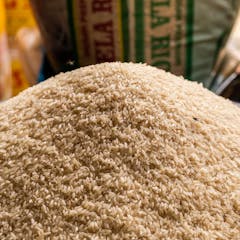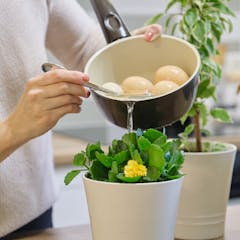
Articles on Rainwater
Displaying all articles

The UK’s Victorian-era sewer network is at breaking point.

More extreme rainfall and frequent storms are raising the risk that floodwaters could spill over dams, or that dams could fail.

Nigeria can produce more rice to feed its burgeoning population by harnessing its wastewater.

Rainwater may be contaminated with chemicals and scientists are still uncertain about their effects.

Rainwater is a vital resource in many communities, but it’s not always safe to use. This sustainable and cheap invention could help many households in remote areas.

Rationing water at home will benefit moisture-starved ecosystems.

Water is central to adapting to climate change, but very few of the strategies put in place to respond to water hazards or ensure its availability have been evaluated.

Britain’s electricity supply is getting greener but the burning question remains over how to decarbonise heating.

Plants can find it tough to get all the nitrogen they need, especially from Australian soils. But summer storms can provide an added boost.

While making small volumes of pure water in a lab is possible, it’s not practical. The reaction is expensive, releases lots of energy, and can cause really massive explosions.

Faced with a drought, it’s tempting for cities to reduce the amount of space that needs water. But this is not a good idea.

Many countries collect and store rainwater for use during drought or dry seasons. But this technique is rarely used in the Caribbean, where hurricanes can leave people without water for months.

The beauty of rainwater harvesting is that anybody can do it.

Water is increasingly becoming scarce as the climate changes. There are four changes that cities can make to adapt to water scarcity.

Australian cities have turned to some very costly solutions when water is scarce. But as the world’s second-highest users of water per person, more efficient use and recycling are key.

States, including Colorado, restrict the use of rain barrels. A water law scholar says a better way to conserve is reduce waste from big – and powerful – water users.

Geosciences can be a valuable tool in the fight to provide Sub-Saharan Africa with safe drinking water.

Built-up urban environments transform the resource of rainwater into wasted runoff. Low Impact Development mimics nature to help get stormwater into the natural water system.
